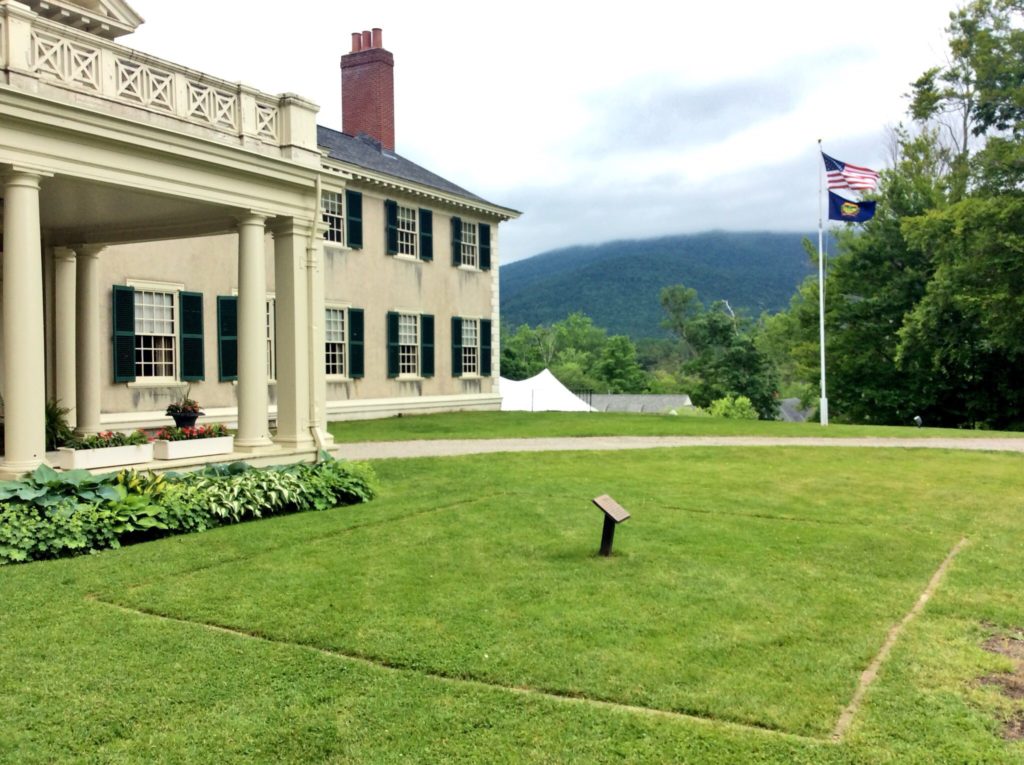
Hildene Mansion entrance with brick outline of the log cabin of Abraham Lincoln’s birth
“Hill” and “Dene (Valley)” Old English Thesaurus
Tucked away in beautiful Manchester, Vermont is Hildene, the family home of Robert Todd Lincoln, 1843-1926. The only child of Mary Todd and Abraham Lincoln to live to adulthood, Robert distinguished himself as the Secretary of War for two presidents, a Minister to Great Britain, and the general counsel, president, and chairman of Pullman Railroad which made the fortune that created Hildene. Robert also served in the Civil War on the staff of General Ulysses S. Grant and was present at General Robert E. Lee’s surrender at Appomattox. Happily married to Mary Harlan, daughter of a US Senator, he had three children, and the atmosphere of the house reflects their harmony.
The quote most commonly attributed to the reserved Robert about his famous father is a regretful one, “During my childhood and early youth he was almost constantly away from home, attending courts or making political speeches. In 1859, when I was 16 … I went to New Hampshire to school and afterward to Harvard College, and he became president. Henceforth any great intimacy between us became impossible….” Visitors can see, however, the love for his father, even before they enter what Robert called “the family’s ancestral home” that harkens back to their English roots. A 12 by 17 feet (3.6 x 5.1 meter) outline of the Kentucky cabin where his father was born is directly in front of the entrance of the impressive 1905 Georgian Revival mansion, which along with the United States and Vermont flags signals to visitors that they are crossing a threshold of both history and the American Dream.
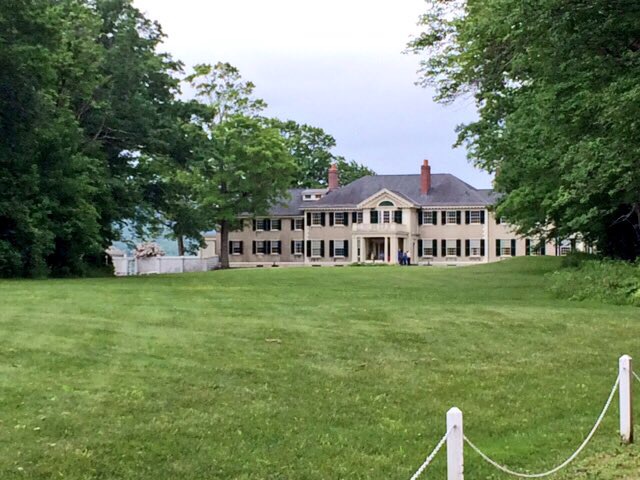
Full view of Hildene Mansion
The Lincoln family’s Manchester connection predates Hildene. Mary Todd, Robert, and brother Tad had spent part of the summers of 1863 and 1864 at the nearby historic Equinox Hotel to escape the heat of Washington, DC and the Civil War, where reportedly a special suite was created for a presidential stay the for the next summer. Robert later frequented the hotel’s golf course, playing on occasion with President Taft, also a guest at Hildene.
The Gilded Age mansion’s stunning floral arrangements created by volunteers and the personal touches: photos, letters, personal items, books, and teddy bears give Hildene the warmth of a lived-in home. Of the 24 rooms, 17 are open so there is a great deal to see. Some furnishings are former possessions of Mary Todd Lincoln’s family and almost everything is original to the house. A happy family lived here, and the dedicated staff and volunteers have conveyed that with thoughtful detail. The soundtrack to the visit is a rare and wonderful one with the music of a “1,000 pipe Aeolian organ”.
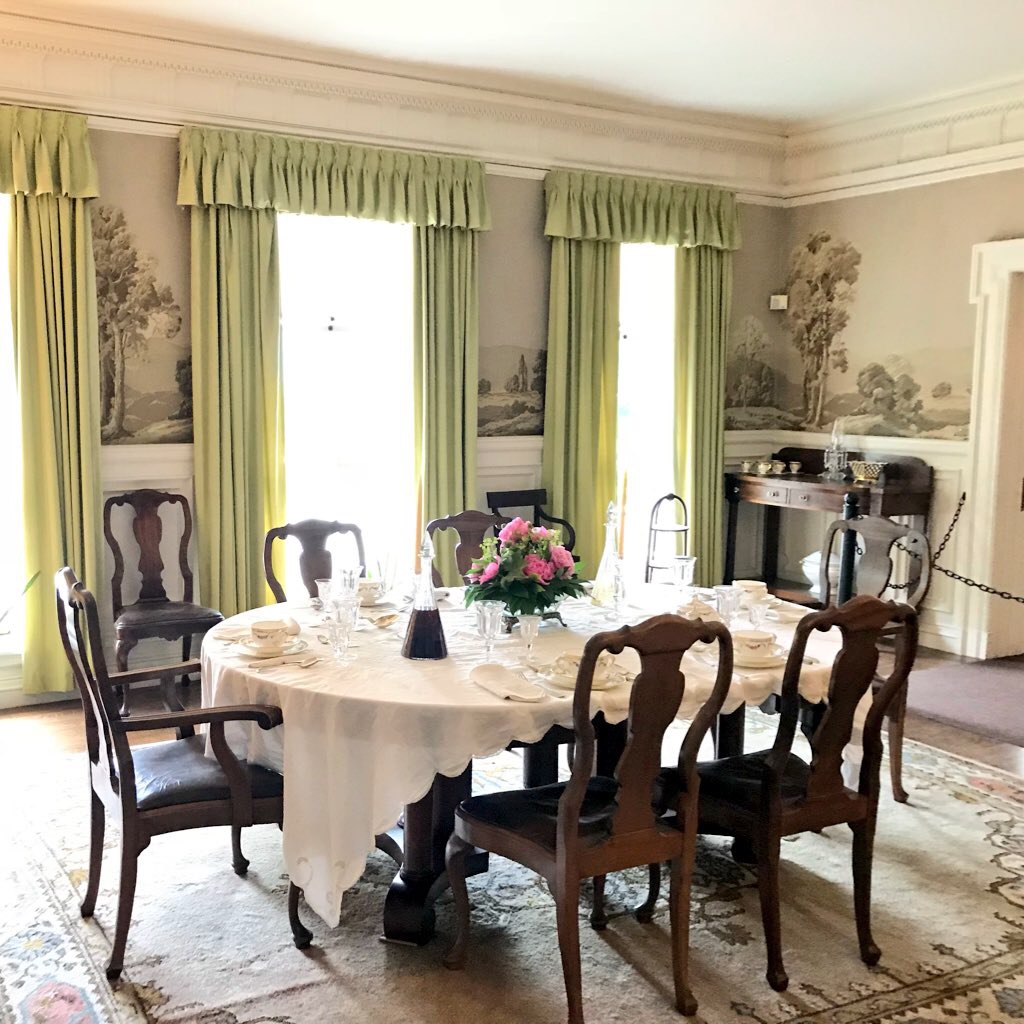
Family dining room
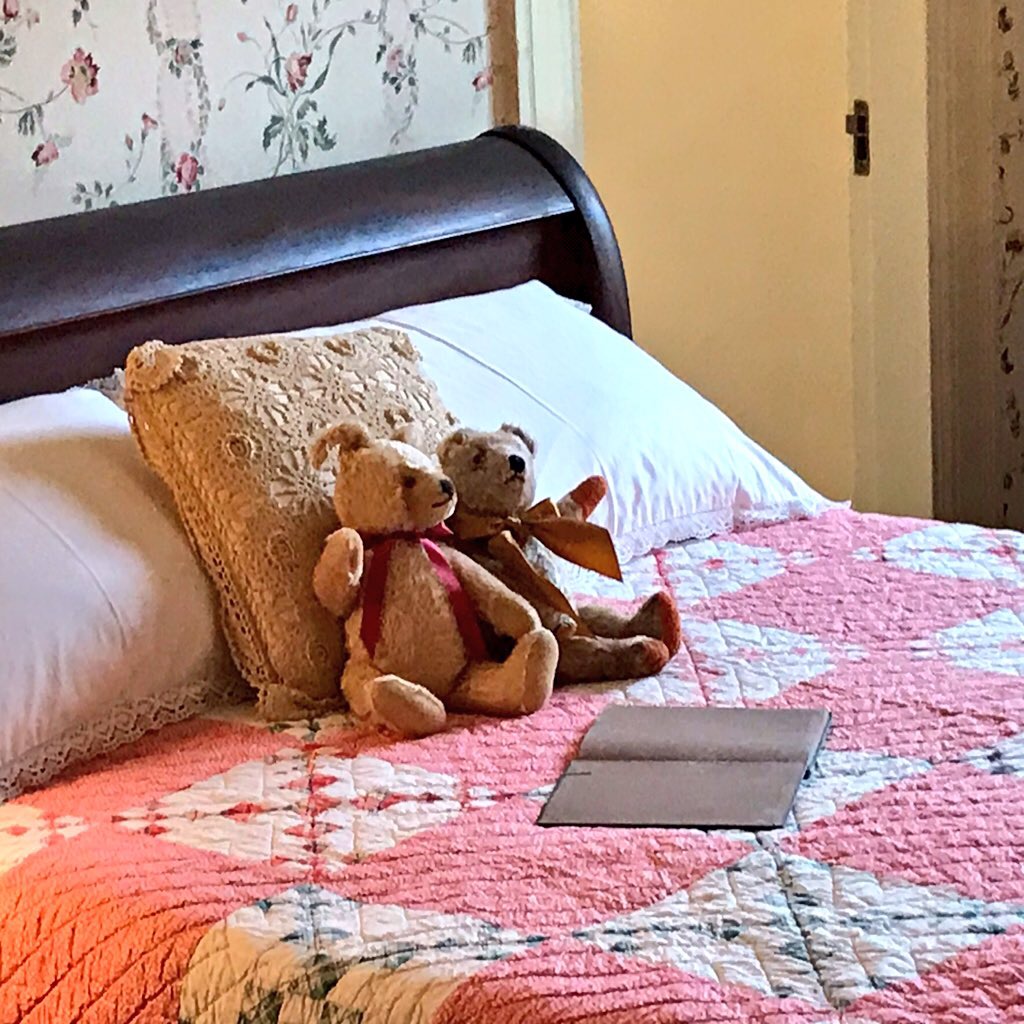
Child’s bedroom
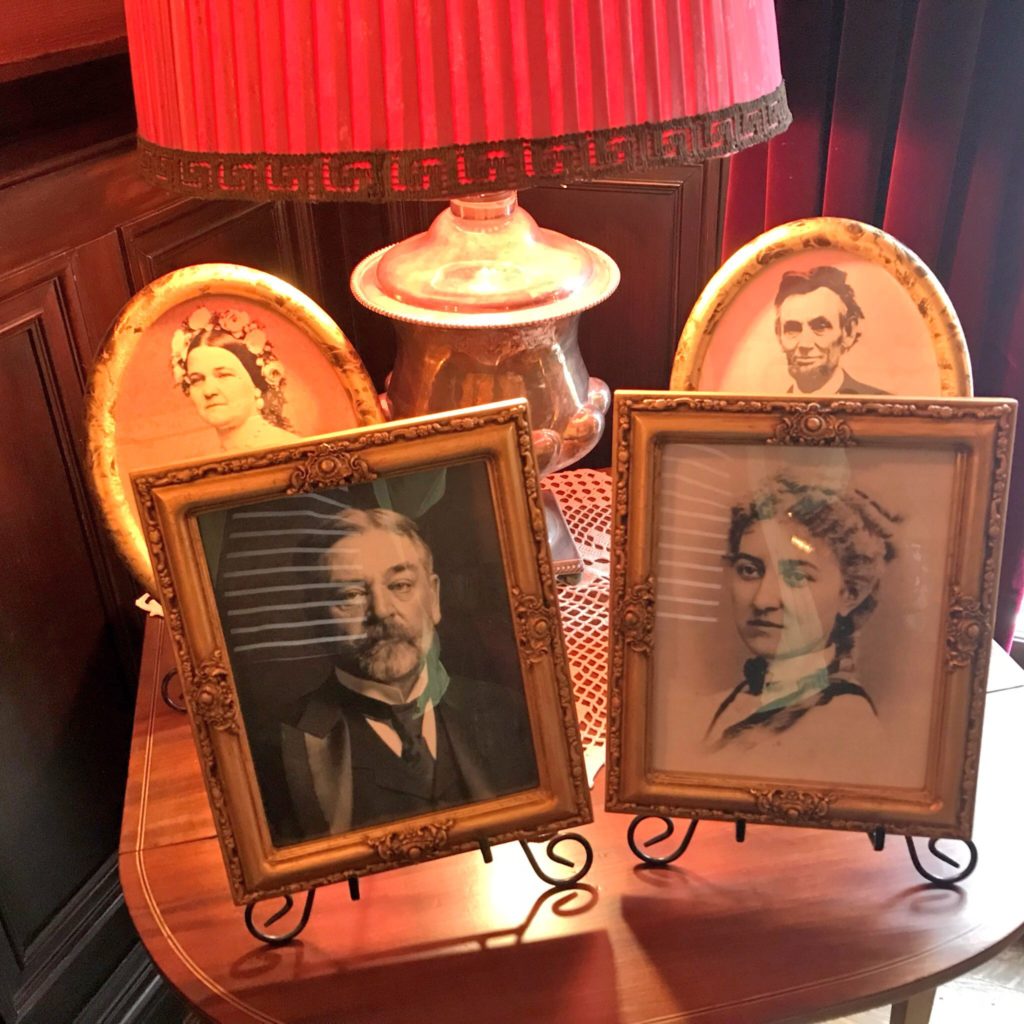
Robert, his wife Mary, and his parents
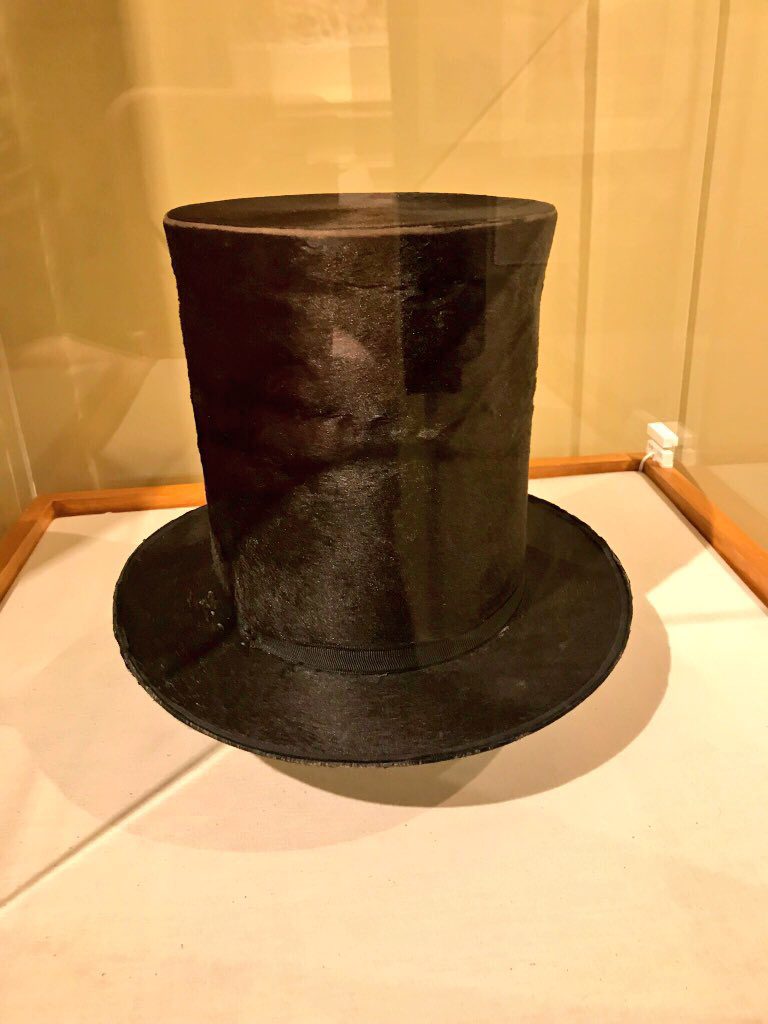
President Lincoln’s stovepipe hat
A compelling and unexpected aspect of the visit to Hildene is an archival room dedicated to President Lincoln’s presidency “The American Ideal: Abraham Lincoln and the Second Inaugural”. President Lincoln addressed accountability and healing at the end of the Civil War so that the country might go forward. Some items on display are his stovepipe hat, Ford Theatre photos, a draft of the Emancipation Proclamation and a related diary entry of Lincoln secretary John Hay. The experience is like looking into the soul of a man and a nation. After viewing the exhibits, without exchanging words my friend and I both sat down on the room’s bench in silent reflection. Other archival material is available at the Charles Woodberry McLellan Collection of Lincolniana at Brown University, preserved in memory of graduate John Hay, for those who are interested.
The mansion with its history and charm are only part of the Hildene visit. Beyond the splendid French parterre garden is a jaw-dropping view of the Battenkill Valley. Frederick Todd, an apprentice of Frederick Law Olmsted of Central Park renown, planned the Hoyt Formal Garden “to resemble a stained-glass Romanesque cathedral window” according to the design of daughter Jessie Lincoln as a surprise for her mother. Peonies are a garden highlight with more than 1,000 blooming in mid-June. In the front of the house, the observatory, though not large, has a remarkable and restored refracting telescope, state-of-the-art in Robert’s day, which enabled the stargazer and fellow astronomy enthusiasts to take advantage of fine hilltop views in a clear night sky.
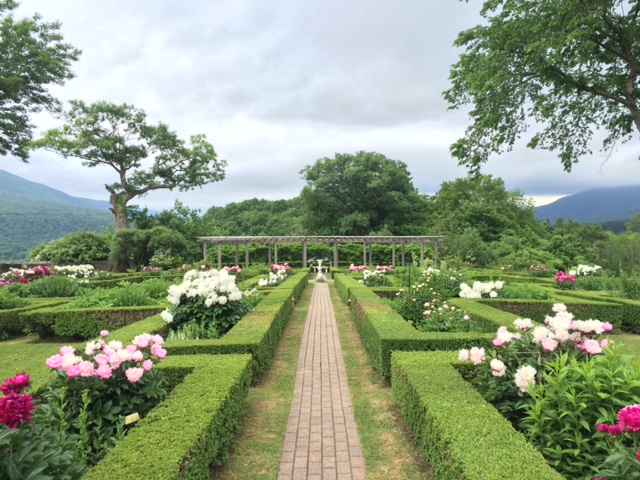
Hoyt Formal Garden with peonies in full bloom and the dramatic Battenkill Valley backdrop
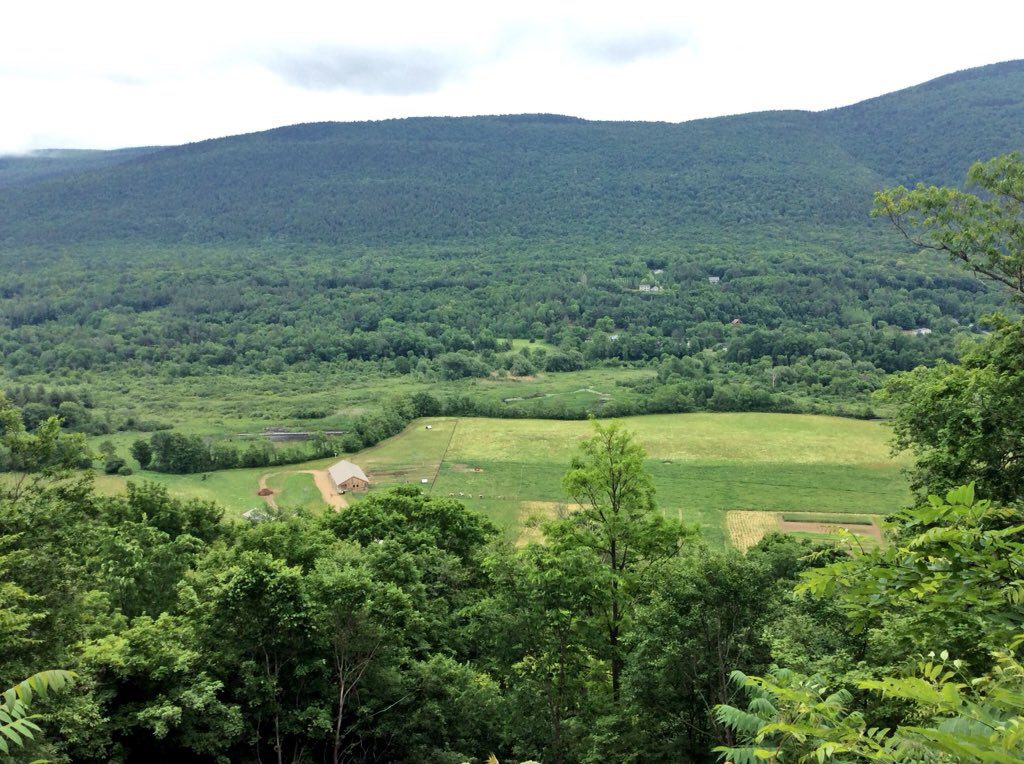
Partial view of Battenkill Valley

Hildene peonies
The welcome Vermont respite of Hildene was a true getaway for the Lincoln family who left their Chicago home base and sometimes stayed for as long as eight months, and it was here that Robert passed away on July 26, 1926. Of Robert, his loving wife Mary wrote that he “was a personage, made his own history, independently (underlined 5 times) of his great father, and should have his own place ‘in the sun.'” This quote is from a request for his burial in Arlington National Cemetery where both she and their son Jack, Abraham Lincoln II, who died at 16, were laid to rest. Robert’s last public appearance was on his father’s behalf in 1926 at the dedication of the Lincoln Memorial where both the Second Inaugural Address and the Gettysburg Address are inscribed.
The last Lincoln family member to reside at Hildene was Robert’s granddaughter Peggy Beckwith who made the estate more self-sufficient, which one can see today with the goat and cheese-making farm. The 412-acre estate, which still retains its original cutting and kitchen garden, is ideally situated between the Green Mountains and Taconic Mountains. In addition to the farm, Hildene offers wonderful hiking trails for those who wish to enjoy nature along with history. The house reflects the different periods of residence, Peggy’s, upstairs, and Robert’s, downstairs. After Peggy’s death in 1975 and a pending sale to developers, The Friends of Hildene fought to save the estate.
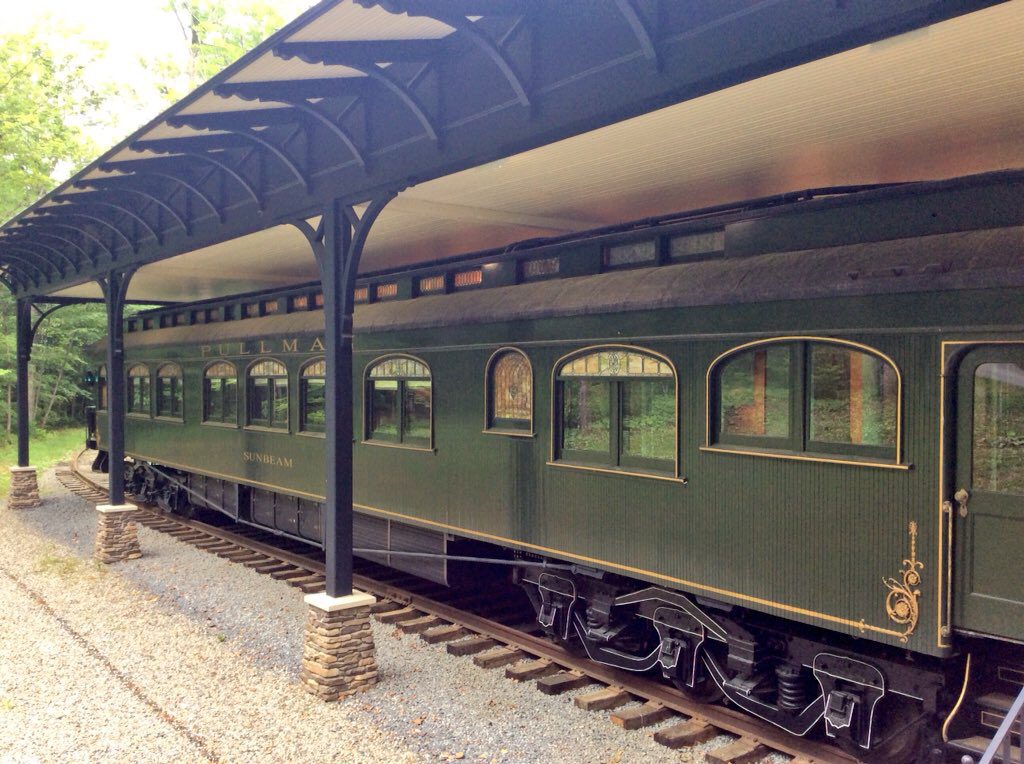
“Sunbeam” Pullman Palace Car
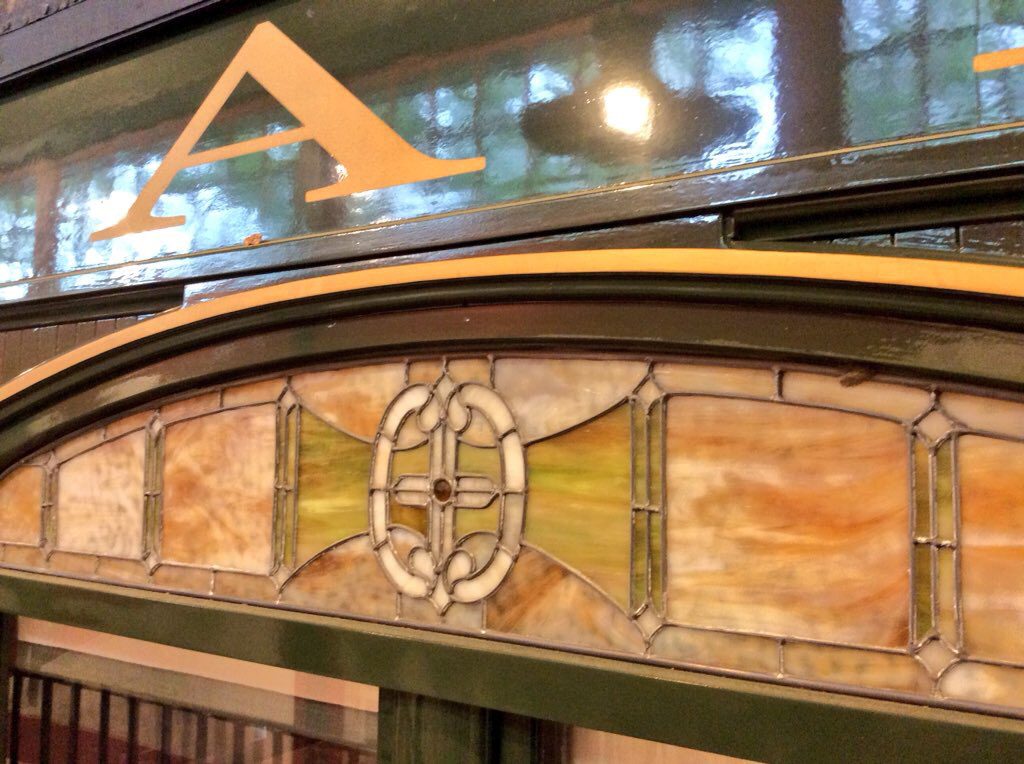
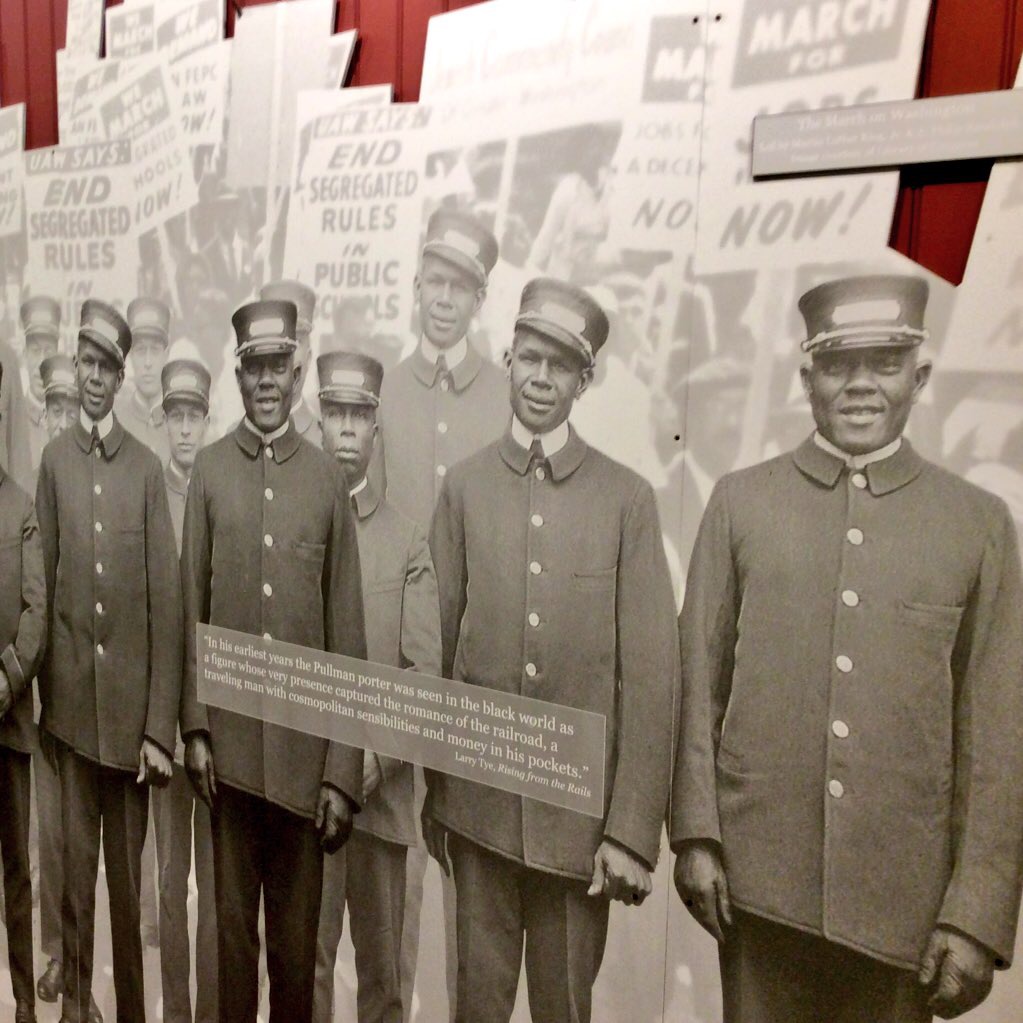
Part of the “Many Voices” Timeline of the experiences of the Pullman Porters
A 1903 Pullman Palace railroad car, the Sunbeam, came to Hildene after a national search and a meticulous restoration process. The luxurious sleeper car, used by President McKinley, reporters for Theodore Roosevelt’s 1912 campaign, and a part of FDR’s funeral train is 75 feet long vs. today’s 60. A timeline “Many Voices” begins with the Emancipation Proclamation on January 1, 1863, which links directly to the hiring of the first Pullman porters who were freed slaves after the Civil War through the Civil Rights Movement in 1963. The long view of history is that the job of porter offered opportunity, social exposure, and income, which led to the creation of an African-American middle class and respect for the porters within their communities. Access to newspapers through travel provided information for family and friends on jobs and conditions in the North. The day-to-day reality was that it was a difficult job with sometimes discouraging anonymity and little room to advance. The informative staff offer in-depth information about the period and Friends of Hildene notes the website of the Vermont African American Heritage Trail for those who are interested in learning more about similar historical sights.
One aspect of New Jersey history for regular readers connects Robert to Jersey City where Edwin Booth, the most famous and distinguished stage actor in the country and founder of The Players in New York City, saved his life. Changing trains in the early 1860’s, the 17 year old Robert, pushed in the crowd, fell between the platform and a departing train. Edwin pulled him up, not knowing who he was. Robert gratefully recounted the incident to Colonel Adam Badeau on General Grant’s staff who sent a letter of thanks to the famous actor. Edwin, ironically, was traveling with John T. Ford, owner of Ford’s Theatre. After President Lincoln’s assassination in 1865 by Edwin’s younger brother John, when Robert was by his father’s bedside when he passed, the letter reportedly gave Edwin comfort.
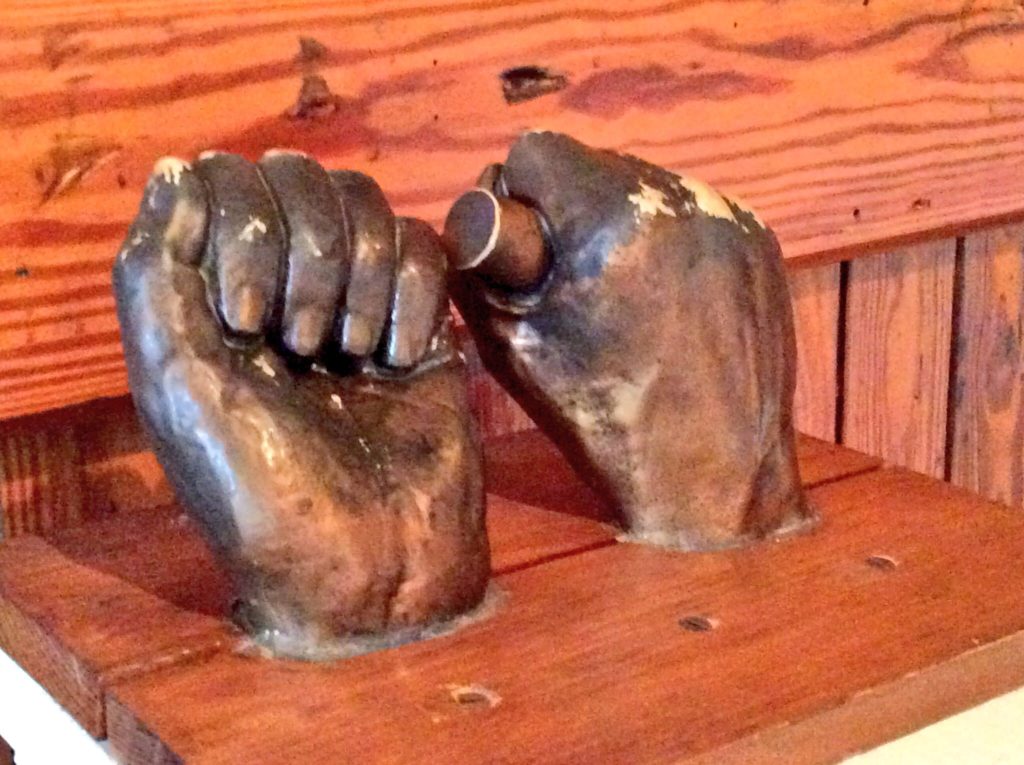
Replica of casts of Abraham Lincoln’s hands shortly after receiving the presidential nomination in 1860. Cast by sculptor Leonard Wells Volk, these are the models for President Lincoln’s hands in almost all well-known statues of him. His right hand is slightly swollen from shaking hands of well-wishers.

Walking around the estate is a pleasure, but there are also trams for visitors. For an accessibility guide, tour arrangements for the visually impaired, group tour reservations, archive tour, lectures and events, and ways to support, visit Hildene. The lovely grounds with an event tent make it a popular place for weddings and other celebrations. As of early 2022: The estate, which includes the home, garden, Pullman Car, Hildene Farm & Goat Dairy, Dene Farm (a high school sustainability program), and twelve miles of walking trails, is open daily from Thursday-Monday, 10:00 a.m. to 4:30 except Easter, Thanksgiving, and Christmas, the 24th-26th. Admission is $23 for adults, $6 for children (6-16). Children under 6 and members are free. Daily 45-minute guided home tours are at 11 a.m. with an additional $7.50 fee. Please register ahead by writing tours@hildene.org or calling (802) 362-1788. A fun note: enjoy cross-country skiing and snowshoeing on the trails from mid-December to mid-March, 10 a.m.-4 p.m. with a preview of the grounds.
Thank you to the staff, volunteers, and Friends of Hildene for a wonderful visit.
(Sources: Hildene.org, EquinoxHotel.com, Biography.com: quote, historynet.com, VermontHistory.org, Smithsonian.com, Telegram.com, NewEngland.com/newsarticles/Lincoln, Wiki)
“Hildene: Robert Lincoln and His Family” All Rights Reserved © 2018 Kathleen Helen Levey
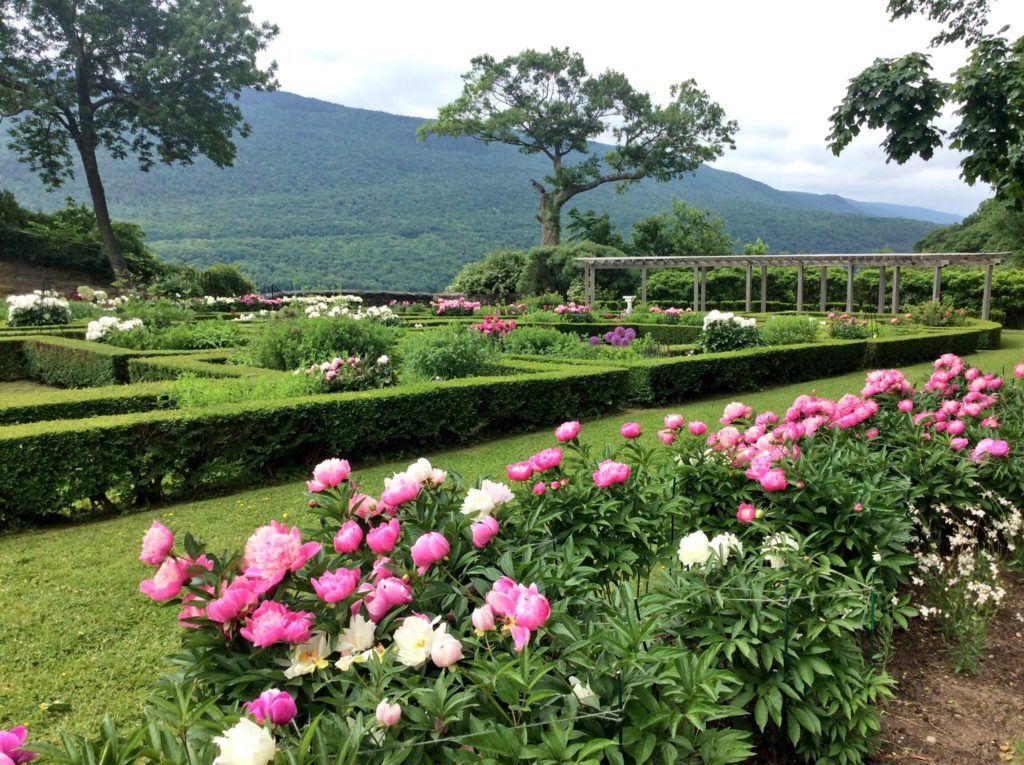
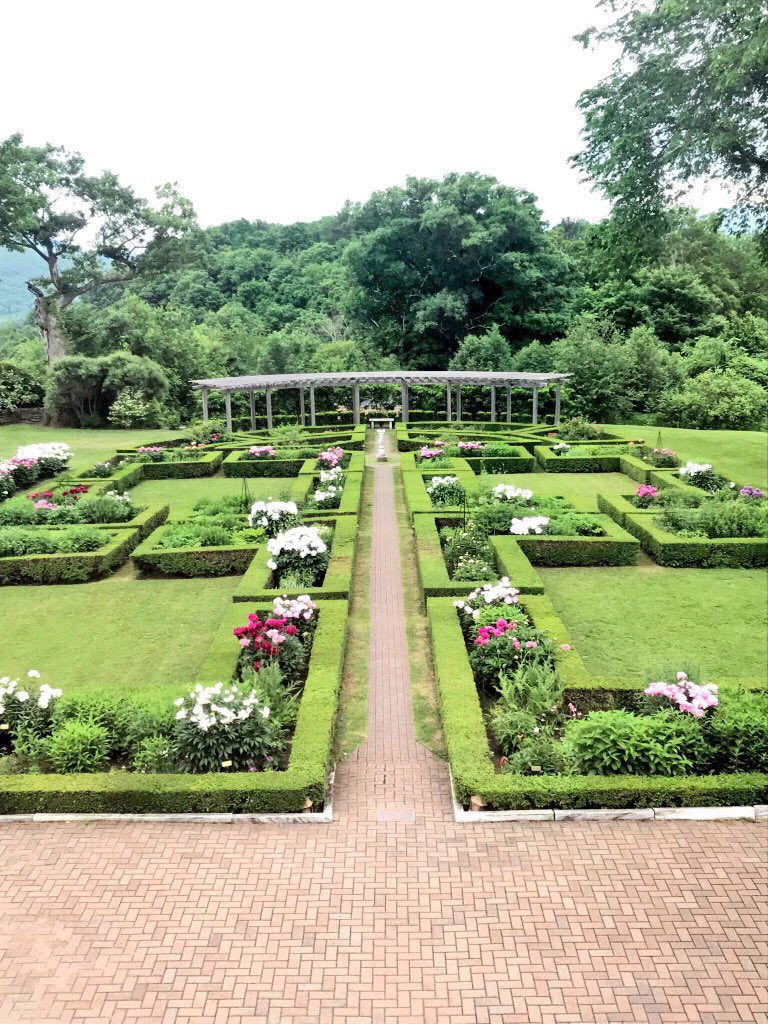
Hoyt Formal Garden view from second floor
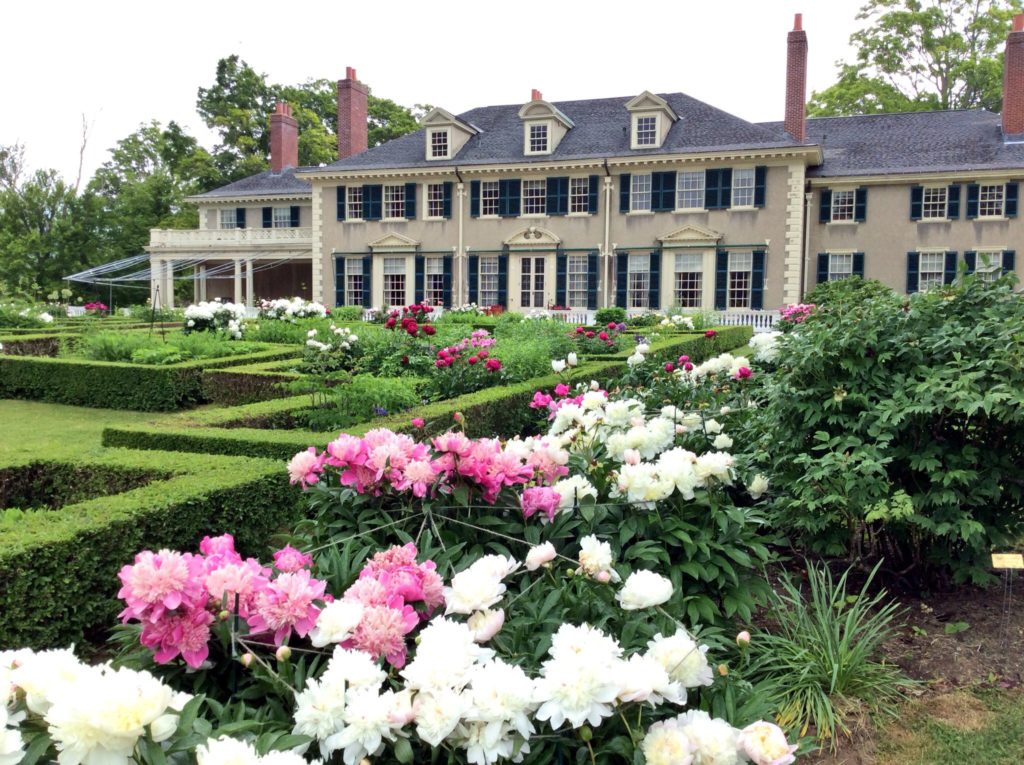
Garden view of Hildene home

Comments are closed.